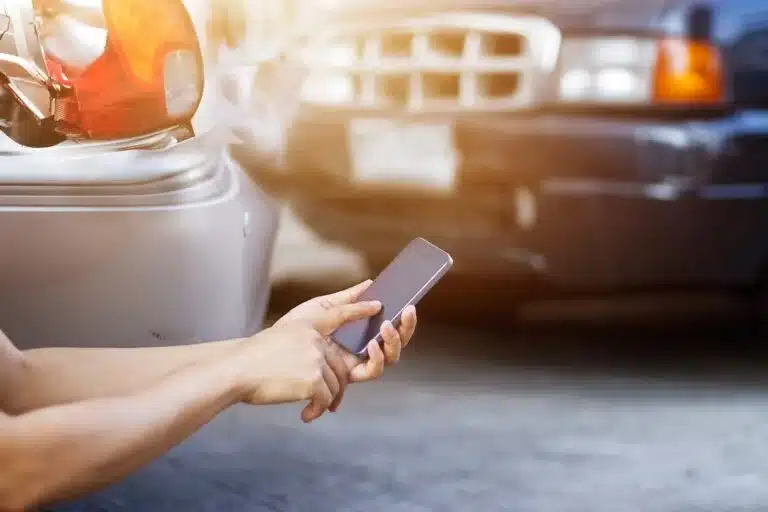
However, they will almost certainly write you a ticket for driving without car insurance. You can also be charged with a misdemeanor, which typically results in a 60-day suspension of your driver’s license and car registration. As a result, your insurance rates will probably go up when you buy car insurance.
Do not assume you were at fault when you may not have all the information about what happened, and never admit fault after an accident. There are many situations where both drivers’ actions contributed to the collision, and it may have been mostly the other driver’s fault. Determining who is mostly at fault is very important to what kind of assistance you can get with your medical bills or repair costs, so don’t do guesswork on your own – you need expert legal advice immediately.
Attorney Ali Awad is experienced in getting to the bottom of car accident cases and fighting for his clients’ rights to compensation. He founded the CEO Lawyer Personal Injury Law Firm and quickly turned it into one of the fastest-growing law firms in the country. In his spare time, he makes engaging yet informative posts about legal topics for more than a million followers on social media. If you or a loved one are trying to make a plan for dealing with accident-related costs, please contact the CEO Lawyer Personal Injury Law Firm immediately for a free, no-obligation consultation.
How to Get Your Costs Covered After an Accident Without Insurance
In most situations, your best bet for covering your expenses and avoiding a bill for the other driver’s costs is to demonstrate that they were at fault. To do this, you need to know that Georgia uses comparative negligence statutes for personal injury cases like car accidents. How does this affect your case? The most important thing to understand is that the other driver doesn’t have to be 100 percent at fault to be responsible for your damages. They only have to be more than 50 percent responsible for you to collect damages. One other fact of note is that your compensation will be reduced by any percentage of fault you do have, so it’s in your best interest to provide as much evidence as possible that the other driver caused the collision.
Your attorney will talk over the details of your accident with you. If they believe you have a strong case for the other driver being at fault based on available evidence, they may recommend you file a claim with the other driver’s liability insurance. This is coverage the other driver has, which pays for another party’s bodily injury and property liability if they cause an accident.
In Georgia, the minimum liability coverage is $25,000 each for bodily injury and property damage, but some drivers purchase larger amounts of coverage. Whatever limit their particular policy has, you will be able to collect damages up to that amount. But because insurance companies make more money when they don’t pay out claims, you may initially be denied for a variety of reasons. The most common is that the accident was mostly your fault, so you should have to pay. There may also be arguments that the policy does not cover certain things it should cover.
Regardless of why you’ve received a denial, the best way to fight it is to talk with a car accident lawyer in Atlanta right away. Some people call up the insurance company and try to tell them why they’re wrong. We understand the temptation, but this usually doesn’t work out well. Insurance adjusters love to record their conversations, which they may inform you about by mumbling or speed-talking their way through a line like, “We record all calls for quality control purposes.” Many people miss this part. Or they may think it’s okay because they’re just going to say that the accident wasn’t their fault anyway.
Unfortunately, insurance adjusters also have a habit of misconstruing what people say to mean that they caused the accident. The insurance company rep may take something you said out of context, apply their own spin on the meaning, and hold it up as proof that the wreck was mostly your fault. The way to avoid this situation is to call a lawyer instead of the insurance company.
What if the Other Driver Thinks It’s My Fault and Tries to Sue Me?
This can happen, and it may complicate your claim, but just because they think it’s your fault doesn’t mean they can prove it. If you get any kind of bill or legal summons regarding your accident or compensation for the other party’s bills, take it to your attorney right away.
Depending on the situation, your lawyer may reiterate that you were not at fault, remind the other party’s attorney of any evidence their client was at fault should they go to trial, or simply explain that you lack the finances to pay their claim. This last point is important because lawsuits are expensive, and most people will drop them if they realize you don’t have any assets they can seize. Even if they can prove you were mostly at fault, it would still save them time and money to use their uninsured/underinsured motorist coverage instead of putting countless hours and court costs into a lawsuit.
Get the CEO Lawyer Personal Injury Law Firm in Your Corner
If you or a loved one are dealing with difficulties after an accident without insurance, know that you may still have options for compensation. The best way to find out what you can do is to talk with an experienced car accident lawyer. Please contact the CEO Lawyer Personal Injury Law Firm for a free consultation. If you want to proceed with a claim and we take your case, there are no up-front costs for you. We work on a contingency basis, so you pay nothing until we secure a settlement.



